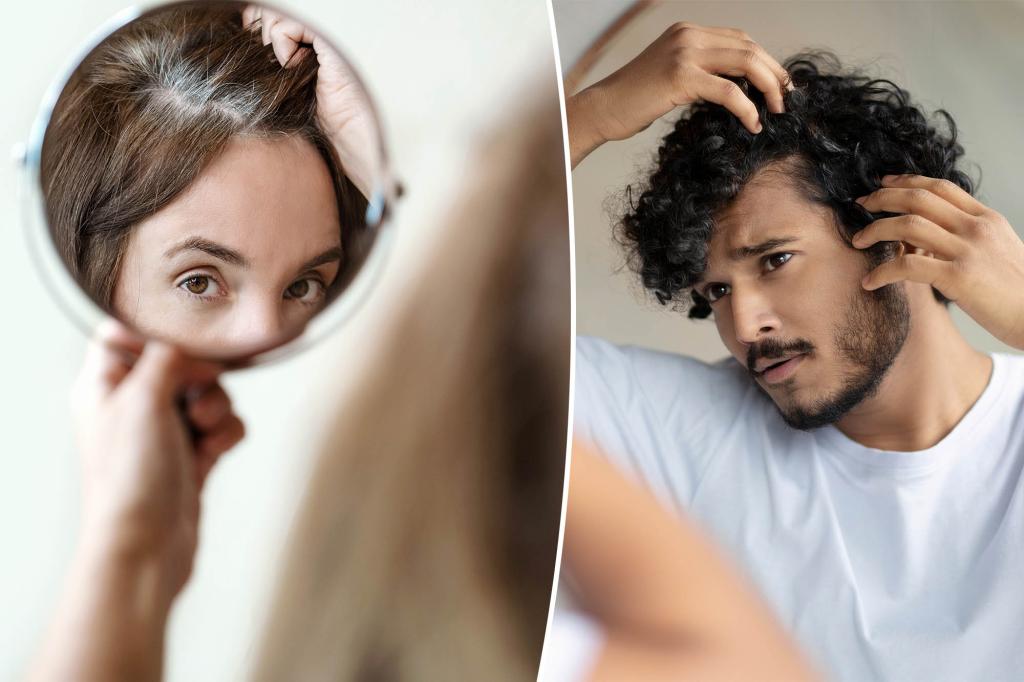Summarize this content to 2000 words in 6 paragraphs
There’s no silver lining to this.
Many members of Gen Z are already going gray, with some Zoomers as young as 19 showing off their silver tresses on TikTok.
According to a 2021 study, hair graying usually begins in the mid-30s for Caucasians, the late 30s for Asians, and the mid-40s for Africans, meaning some members of Gen Z are experiencing the phenomenon almost two decades early.
But what may be a novelty to youngsters is alarming to experts, who say premature graying may indicate a plethora of health issues.
Catarina Orr-Lee, an Ohio-based integrative health coach, said it’s a surefire sign of mineral imbalances.
In a recent social media clip that scored more than 7 million views, she asserted it was high levels of zinc and calcium and low levels of iron and manganese that could be contributing to grays sprouting from the scalp.
She added that copper, too, could be to blame.
“It’s no surprise — copper, zinc and iron play a role in tyrosinase activity,” NYC board certified dermatologist Dr. Viktoryia Kazlosukaya told Newsweek. “This is an enzyme essential for pigment synthesis.”
She told the outlet that premature graying is typically seen in people with iron-deficiency anemia. Iron supplementation, the treatment for iron deficiency, “can restore hair color to normal,” she added.
“Oxidative stress is another significant factor in premature graying, but the extent to which it contributes compared to other factors remains unclear,” she continued.
“Copper helps our body combat oxidative stress, and chronic stress may deplete copper levels, potentially leading to premature gray hair.”
Genetics, health conditions, thyroid disorders, autoimmune diseases, smoking and a vitamin B-12 deficiency can also be to blame, according to Healthline.
To determine whether minerals are the root cause of hair color changes, Orr-Evans recommends getting a special kind of test called a hair tissue mineral analysis, which can determine the levels of minerals in hair strands.
She also warned against a supplement shopping spree.
“Most people hear ‘focus on replenishing with minerals,’ and they think they need to buy supplements off the shelf, which isn’t the best source of minerals,” she said, claiming that food is “the best source of minerals.”
“Plus, taking random supplements you might think you need could offset other minerals.”


